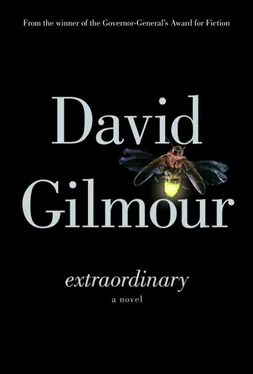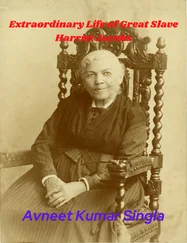David Gilmour - Extraordinary
Здесь есть возможность читать онлайн «David Gilmour - Extraordinary» весь текст электронной книги совершенно бесплатно (целиком полную версию без сокращений). В некоторых случаях можно слушать аудио, скачать через торрент в формате fb2 и присутствует краткое содержание. Город: Toronto, Год выпуска: 2013, ISBN: 2013, Издательство: Patrick Crean Editions, Жанр: Современная проза, на английском языке. Описание произведения, (предисловие) а так же отзывы посетителей доступны на портале библиотеки ЛибКат.
- Название:Extraordinary
- Автор:
- Издательство:Patrick Crean Editions
- Жанр:
- Год:2013
- Город:Toronto
- ISBN:978-1-44342-372-4
- Рейтинг книги:4 / 5. Голосов: 1
-
Избранное:Добавить в избранное
- Отзывы:
-
Ваша оценка:
- 80
- 1
- 2
- 3
- 4
- 5
Extraordinary: краткое содержание, описание и аннотация
Предлагаем к чтению аннотацию, описание, краткое содержание или предисловие (зависит от того, что написал сам автор книги «Extraordinary»). Если вы не нашли необходимую информацию о книге — напишите в комментариях, мы постараемся отыскать её.
Extraordinary
Extraordinary — читать онлайн бесплатно полную книгу (весь текст) целиком
Ниже представлен текст книги, разбитый по страницам. Система сохранения места последней прочитанной страницы, позволяет с удобством читать онлайн бесплатно книгу «Extraordinary», без необходимости каждый раз заново искать на чём Вы остановились. Поставьте закладку, и сможете в любой момент перейти на страницу, на которой закончили чтение.
Интервал:
Закладка:
I kept the story to myself for the simple reason that I was in the company of a woman who had been the victim of a less colourful incident (carpet, fireplace) but the manifestations of which had disfigured her life in a matter of seconds. What does such an event say? Is the lure of religion some kind of protection from such a thing happening? From the despair that it could happen? Does happen? Why would I walk away from my accident and she didn’t walk away from hers? So there can’t be an afterlife, I thought. Because that would mean there has to be a God. And what kind of God would allow such a thing to happen? In what way is such an incident instructive?
“You’ve gone off somewhere,” Sally said. “Where did you go?”
“I’m not sure.”
“Yes, you are.”
I grabbed the handle, so to speak, of the first pot I could reach, the recent death of a casual acquaintance, Bobby Coatsworth. Brain cancer. He was a television news anchorman with such a deep broadcaster’s voice that sometimes you couldn’t quite believe he wasn’t putting you on. The cancer started in his throat and bounced around his body like a pinball. Killed him in ten months. When I heard the news, I said, Well, Bobby was always a pretty tense guy. As if his being tense was why he got cancer. And why I didn’t.
As I talked, Sally leaned forward in her chair, testing her elbow on an embroidered pillow. She was looking at me closely, waiting for something. I went on, “You hear about a plane crash, you want to know immediately where the plane was coming from, or where it was going to.”
“Really?”
“Because—because then you think, I never go there anyway.”
“Did you think that when the Air France plane went down last summer?”
“I did. I thought, Well shit, they were going to São Paulo. As if going to São Paulo had anything to do with the cargo door falling off over the Atlantic.”
“Did you feel that way about my accident? That I had it coming?”
“Never. Not for a second.”
“I wonder why not.”
“Because I love you.”
It didn’t make any sense, it didn’t follow anything, but I’ve always been glad I said it, always been glad it just blurted out.
The telephone rang. The purring kind. Purr. Pause. Purr, purr.
“Let it go,” she said. “I’m having too much fun.”
Like waiting for a waiter to finish pouring the wine and leave the table, we waited for the phone to stop.
“Did you have anything in your hands?”I said.
“What?”
“When you tripped on the carpet in Mexico, did you have anything in your hands?”
“That’s a question no one’s ever asked me.”
“Perhaps it’s not so interesting a question.”
“Why do you ask?”
“I have often wondered why you didn’t throw your hands up to protect your face. Or was it all too fast?”
“No, it wasn’t too fast,” she said in the tones of one who is deciding whether or not to pursue a subject. “You know why I didn’t throw my hands up? I didn’t throw my hands up because I was born with an eccentric deficiency. Move a little closer to me.”
I hesitated. “Is this going to be something that hurts?”
“I don’t do things like that. I hate people who do things like that. But come a little closer.”
I got up and stood above her.
“Bend down a bit.”
“Sally.”
“Trust me.”
I bent over. She took one of my hands and moved it toward her face. She did it the first time slowly, the second time a little faster. “When I was born, I was born without a reflex to protect my face. I wore glasses in high school and when I was playing sports. I didn’t need them, but if something lurched at my face, I didn’t react.”
Then she took my hand—her hand was very warm, the fingers curled inward but her fingernails were beautifully maintained—and moved it slowly toward my face. I think it was more of a reason to touch me, to have me touch her, than to illustrate what she meant. But I was glad to do it. Glad to touch her. I thought to myself, Am I the last person who will ever touch you? Is mine the final human contact? I let her hand rest on my face.
She said, “Whereas if I make a motion toward your face, you’ll put up your hands, you’ll blink.”
I pulled my eyes away from her. I could feel my chest tighten. I said, “You never told me that before.” I sat back down.
“Where was I?” she asked.
“You were lying on the dining room floor of Freddie’s house.”
“A local doctor arrived. He gave me a shot. I woke up in a helicopter. It took me from San Miguel to the ABC hospital in Mexico City.”
“Didn’t you have to pee by then?”
“Everything had shut down. From my neck downwards. It was like waking up in somebody else’s sleeping body. You want to move your arm, but your arm won’t obey, as if it has forgotten the language the two of you spoke and all it hears now is gibberish.
“Three or four doctors came in. They spoke only in English, even when they were talking to each other. A very classy gesture—they didn’t want me wondering what was being said. Still, I did have the feeling that I had become somehow the object of a Martian science experiment. A doctor brushed the sole of my foot with what looked like a Popsicle stick. ‘Does that tickle?’ he said. And I kept saying, ‘Have you done it yet, have you done it yet?’ And then they switched to my other foot, same business, and there was something about the matter-of-factness, the professional matter-of-factness with which they responded to my question Have you done it yet? that filled me with a kind of dull fright, as if the fright itself was a piece of lead in my body.
“I asked them a question. The question. But they wouldn’t answer it. They put me in a long metal tube with lights inside and a round window. Like a small spaceship. Sometimes I was looking at the ceiling tiles, other times I was looking at the floor tiles. Like a human sausage on a rotisserie.
“The next day or the day after, a doctor came in to see me. He was a lanky man with thick grey hair, like a movie star playing a Mexican doctor. Dr. Philippe Ortoya. He flirted with me. Maybe it was therapy. While he was checking my pupils, I said, ‘I want you to tell me the truth, Doctor. Will I ever run down the street again?’
“‘No,’ he said.
“‘Will I ever climb the stairs to my bedroom on the second floor?’
“‘I’m afraid not,’ he said.
“‘Will I ever be able to go to the bathroom without a bag on my leg?’
“He said, ‘It’s too early to tell.’
“I said, ‘Is that the best news you have for me?’
“Dr. Ortoya seemed to understand what I was thinking, because he said to me, ‘We get used to situations.’
“‘Not this situation.’
“He said, ‘Do nothing rash. Wait.’
“I said to him, ‘Is there anything to wait for?’
“‘Are you religious?’
“When I heard that, I thought, Boy oh boy, am I ever going to kill myself! Suddenly, there was a real urgency to do it—to do it quickly, before anybody could read my mind and stop me. But that’s the problem with being crippled: You can’t kill yourself. The best you can do is fall out of your bed and bang your head on the floor. But that’s not going to kill you.
“And you can’t ask a friend to roll you to the edge of a cliff and look away for a second. Because even then, you can’t get out of your fucking chair. You have to have someone tip you. And, you know, finding someone to tip you over the side of a cliff, that’s a tall order. Those kinds of friends are hard to come by.
“One night, as I lay in my hospital bed in Mexico City, I watched a romance start up in the building across the street between a man with a mop and a bucket—he must have been new on the job—and a woman in a blue apron who was going from office to office emptying the wastepaper baskets. It was the middle of the night, just their floor was illuminated, and you could see them working their way toward each other. The one thing that nothing, not even gravity, can stop: people finding their way to each other even in a dark building. It went for a week like this, the two of them meeting in the brightly lit office and talking. And then one night I saw the man get up and go over and turn off the lights. Just for a half-hour or so. And I wondered if, in my condition, I would ever be part of that world again. Would I––” Here she paused, as if the instant in which the original thought had first occurred to her reopened like a seed in her memory. “Would I ever be attractive to the opposite sex again?
Читать дальшеИнтервал:
Закладка:
Похожие книги на «Extraordinary»
Представляем Вашему вниманию похожие книги на «Extraordinary» списком для выбора. Мы отобрали схожую по названию и смыслу литературу в надежде предоставить читателям больше вариантов отыскать новые, интересные, ещё непрочитанные произведения.
Обсуждение, отзывы о книге «Extraordinary» и просто собственные мнения читателей. Оставьте ваши комментарии, напишите, что Вы думаете о произведении, его смысле или главных героях. Укажите что конкретно понравилось, а что нет, и почему Вы так считаете.












